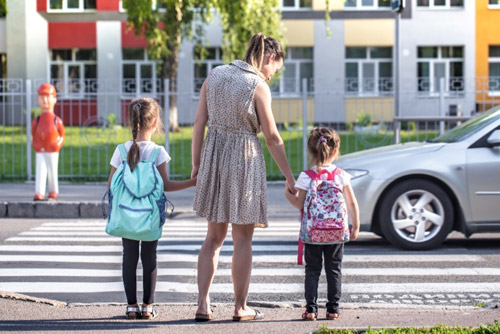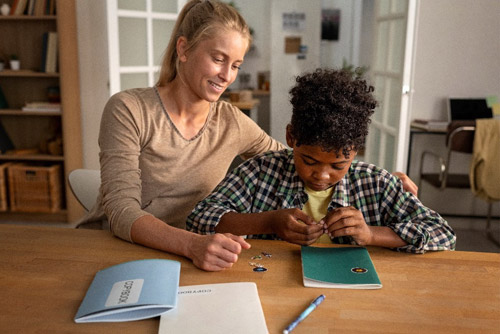
Internet Safety for Kids: How to Protect Your Child from Online Dangers
The internet is an ever-increasing part of today’s culture, and especially for children and youth. Kids utilise the internet for schoolwork and activities, online gaming and even social networking. However, the lack of internet safety for our children, and how to go about educating and protecting our children from the dangers of the online world is still an ongoing challenge. In this blog we discuss 4 approaches to internet security for your children that you can implement in your own home.
1. Discuss The Dangers of Being Online
Keep Location Private – Most apps, networks and devices implement geo-tagging features that can allow others access to your physical whereabouts. These features, along with other privacy features should be adjusted and turned off in order to protect your child’s physical and internet safety. In addition, you should encourage your children to refrain from sharing any personal information to anyone online. Explain that it is inappropriate to send phone numbers, home addresses and school names with other online users.
Share Aware – It is crucial to educate your children about their online reputations, and the dangers of sharing inappropriate or offensive content. You should explain that everything they share on the internet is made public for everyone to see once it is posted. While they may not fully understand the consequences of revealing personal information, or sharing offensive content, you should teach them to be conscious, thoughtful and intentional about what they wish to share online. From a young age, encourage your child to respect and protect their own online identity, while also practising kindness and respect towards other users. With this said, the same goes for parents posting and sharing images and information about their children and families.
Social Network Savvy: Empower Kids with Reporting Tools – In the real world, we teach our children how to respond to various dangers, explaining when and how to call emergency services, how to find help when in need, and who to contact when they feel scared or threatened. The online world is no different. It is essential to empower our kids with various reporting tools and also remind them that they can approach you when they are unsure.
2. Talk Openly With Your Children About Their Online Activity and Internet Safety
As soon as your little ones start accessing the internet, it is important to chat to them openly and honestly about what they are watching, reading and who they are communicating with. Ask your child what sites they are visiting, or what apps they download. Make a list of these and go through them together. Talk to your kids about what you think is appropriate, and remind them that this may differ from family to family. Clear and transparent communication about their (and your) online activity is one of the best ways to promote internet safety for your family.
3. Know Your Parental Controls and Establish Ground Rules
Innocent searches online can result in exposure to not-so-innocent content. As such, it is imperative to understand how to use parental controls and restrictions offered by various applications, devices and web browsers. Implementing various restrictions can regulate your child’s exposure to unsuitable content, and also limit their ability to share personal content that can be used inappropriately by other users. For example, the SafeSearch Filters on Google can block websites that display illicit sexual material. In addition, there are a multitude of further paid security tools you can install on your home devices to protect your child’s internet safety. To activate SafeSearch on Google, navigate to Settings and scroll down to SafeSearch Filters. From here, you can customise your web filters to suit your families’ requirements.
In addition to this, it can be wise to establish age appropriate, non-negotiable rules for any and all internet use in the home. For example;
- Don’t share personal information online
- Don’t share photos online
- Don’t follow or befriend anyone you do not know personally
While some rules may be easier to follow as they mirror real-world equivalents (“don’t talk to strangers”), other rules may need a little more explanation. In addition, revisiting the rules with older children may lead to more complex conversations about online bullying, reputation management and sexual predators. It is vital that you elaborate on all the risks of ‘being online’, so that they have the confidence to approach you with any questions and concerns when they are unsure.
4. Know Who Your Children’s Online Friends Are
As parents and adults, we are aware that some people we may interact with online are not who they say they are. It is easy for us to recognise unfamiliar and threatening online characters. Our children however, can be more naïve about online predators, trolls and bullies. It is thus important to teach our kids how to be cyber wise from a young age in order to protect their internet safety.
Make sure you are kept up to date with the individuals that are part of your child’s social media circles and ensure you monitor the content they are interacting with or sharing. As they grow older, your children may begin to resist telling you who their online ‘friends’ are. Insist that this is one of the conditions for you to allow them access to the internet.






